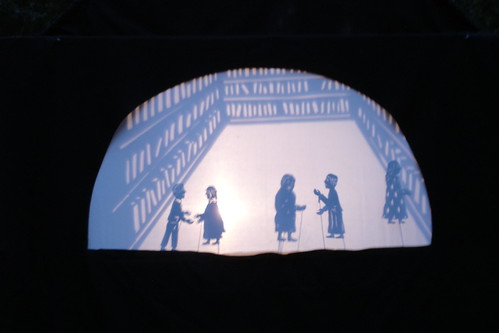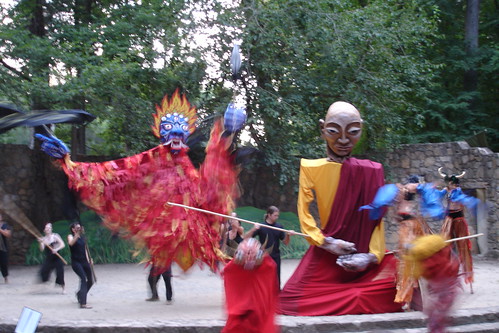One of the primary characteristics of Web 2.0 is that it involves trusting one’s users. As librarians, we have always placed immense trust in our users. As defenders of intellectual freedom we have defended freedom of speech, freedom of the press, freedom to meet, and so on. We have collected the most unpopular and crude materials alongside those that are popular and beautiful. We collect political commentary from all sides of an issue. It has always been my belief that we do this because we trust in our patrons to be curious, intelligent, and compassionate readers. Our democracy is founded on the idea that, given both sides of an argument the majority of people will be able to distinguish what is good and true from what is bad and false. We have always trusted that this majority of our readers will be able to distinguish the good from the bad. Moreover, we have trusted our patrons to use the knowledge they have gained outside of the walls of the library. Like the press, libraries expose people to all ideas and expect them to use this knowledge in political, academic, and social discourse. Towards this mission, we not only collect different points of view, but open our meeting rooms. We let all groups use our meeting rooms, but allow all patrons to attend, whether in support or protest. As librarians we are neutral. At the reference desk, we attempt to give our patrons whatever resources they need to discover the true answer to their problems. We let them decide for themselves. This is extreme trust. How then is Library 2.0 different?
Traditionally, excluding our meeting rooms, we expected our patrons to use the knowledge they gained outside of the library. Eventually ideas would trickle back in through traditional media sources such as newspapers and books. The read/write web has sped this process up. Now it is possible for readers to feed their knowledge back into the system in real-time. Libraries have always been considered places of reading. Library 2.0 is a place of both reading and writing. I would argue that it was always our idea that patrons would write their ideas down and that they would eventually reenter our libraries as part of the historical record. We always trusted that the majority of our writers strive to distinguish that which is good and true. Library 2.0 now requires us to maintain this trust in the majority. We must continue to trust that most readers are curious, intelligent and compassionate. The only difference is that the evidence of this will now be created and stored on our servers. It has always been easier to put hate group propaganda in the stacks than it has been to host hate groups in meeting rooms because the first can be obviously lost among the true and good arguments around it. In fact, it is only noticed when we search for it. In the meeting room or on our blogs, that hate speech is in your face. However, I guarantee that if any such bigotry is posted to a political discussion hosted on our blogs, it will quickly be drowned out by the voices of more responsible patrons. Moreover, those citizens will cite other sources on the web and in our collections. They might even make a compelling enough argument that the minds of a few lurkers are changed. This is what democracy is all about. This is what libraries have always been about. Web 2.0 has just changed the dynamic of how intellectual inquiry and democracy operate. In this way Library 2.0 speaks to some of the best of traditional library values, and, in so doing, defends the library as a cornerstone of democracy in a networked world.
To me Library 2.0 is not revolutionary, but instead evolutionary. As my Academic Library 2.0 Concept Model suggests, I believe the main goal of Library 2.0 is to figure out how to carryout the libraries’ traditional roles in a read/write world.
I was just about to post this and noticed that Barbara Fister has touched upon these ideas in a post titled Gathering Intelligence on the ACRLog. She proposes the following in a discussion of Wikipedia:
Wikipedia could be a useful and familiar metaphor for the collective intelligence in the library – and for the social networking that has gone on for centuries.
I also noticed Learning is essentially a social activity by Judy O’Connell:
Ultimately, it’s not just about skills and competencies in isolation, but about skills and competencies within the greater context of our global society. The reality is that the web environments of social networks are very empowering when utilised to develop ideas, share resources, hone knowledge and empower creativity.
_______________
In my next post, I am currently planning to explore how we might use the principles of Customer Relationship Management (CRM) and Web 2.0 to harness the collective wisdom of our patrons.
library 2.0 academiclibrary20


